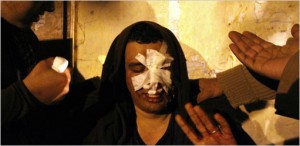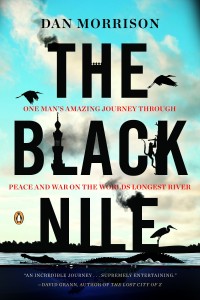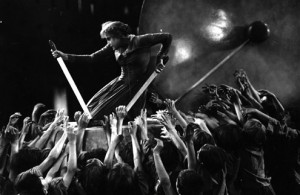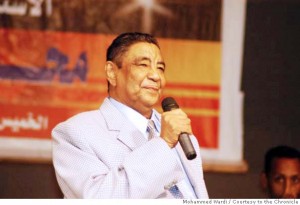 I’m not in Egypt, and I wish I was. Here’s a piece I wrote for Slate.com on the exhilarating and hard-won freedom from fear that has overtaken hundreds of thousands of Egyptians.
I’m not in Egypt, and I wish I was. Here’s a piece I wrote for Slate.com on the exhilarating and hard-won freedom from fear that has overtaken hundreds of thousands of Egyptians.
Meanwhile, as the deadly battle for control of Tahrir Square continues, with at least five dead at the hands of government-organized mobs, a few notes based on conversations with friends on the ground.
* The protests had been peaceful since the black-helmeted riot police were routed earlier this week – “a textbook Gandhian uprising,” as the Al Jazeera English anchor just described it. The young protesters controlling the square were checking people for weapons before allowing them to enter (“I got patted down in the nicest way,” said one female friend, this in a city well-known for the sexual harassment of women.) The violence started with the arrival of pro-Mubarak thugs carrying blades, clubs, razors, firebombs and guns. “A lot of people are going to die, and it’s because Hosni Mubarak, 82 and suffering from pancreatic cancer, does not know when to leave the cocktail party.” Continue reading “The Dam Bursts in Egypt”




 Travel writer
Travel writer  In my latest piece on the National Geographic website, members of a tiny Indian hill tribe insist their distinct language is no different from that of their neighbors — and the bigger tribe agrees. In reality, the tongues are as different as English and Hindi.
In my latest piece on the National Geographic website, members of a tiny Indian hill tribe insist their distinct language is no different from that of their neighbors — and the bigger tribe agrees. In reality, the tongues are as different as English and Hindi. Travel guide author Steve Waters, writing at the Lonely Planet website,
Travel guide author Steve Waters, writing at the Lonely Planet website,  The forests of Bangladesh are dwindling by the day, creating a furry refugee crisis among forest-dwelling animals who are forced into towns and villages in search of food.
The forests of Bangladesh are dwindling by the day, creating a furry refugee crisis among forest-dwelling animals who are forced into towns and villages in search of food.
 * “A masterful narrative of investigative reportage, travel writing, and contemporary history.” –
* “A masterful narrative of investigative reportage, travel writing, and contemporary history.” –  * The Black Nile “combines wit with deep reporting…Getting in and out of dangerous locations is clearly Morrison’s forte.” –
* The Black Nile “combines wit with deep reporting…Getting in and out of dangerous locations is clearly Morrison’s forte.” –  * The Black Nile “avoids the evangelical zeal and naïve prescriptions other Africa books fall victim to . . . Morrison teeters dangerously close to gunfights, disease, and run-ins with the authorities while relying on former rebels, proto-entrepreneurs, and crooked bureaucrats to get him through.” –
* The Black Nile “avoids the evangelical zeal and naïve prescriptions other Africa books fall victim to . . . Morrison teeters dangerously close to gunfights, disease, and run-ins with the authorities while relying on former rebels, proto-entrepreneurs, and crooked bureaucrats to get him through.” –  * “Adventure is only half the story in this marvelous book, and maybe the lesser half…A beautifully-written tale of an American on a journey to find out who else is out there, what they’re thinking, why they do what they do, and hey, check out that sunset with the cranes flying low across the horizon.” – Tom Robbins,
* “Adventure is only half the story in this marvelous book, and maybe the lesser half…A beautifully-written tale of an American on a journey to find out who else is out there, what they’re thinking, why they do what they do, and hey, check out that sunset with the cranes flying low across the horizon.” – Tom Robbins,  * “There’s enough grist in this excellent travelogue to craft a dozen killer Microkhan posts.” – Brendan Koerner,
* “There’s enough grist in this excellent travelogue to craft a dozen killer Microkhan posts.” – Brendan Koerner,  * “If you’re weary of cliched newsbites, misery memoirs and exoticised adventurism, and want more insight than disaster reporting or parched analyses can offer, this is a refreshing relief.” – Peter Verney, Sudan Update
* “If you’re weary of cliched newsbites, misery memoirs and exoticised adventurism, and want more insight than disaster reporting or parched analyses can offer, this is a refreshing relief.” – Peter Verney, Sudan Update